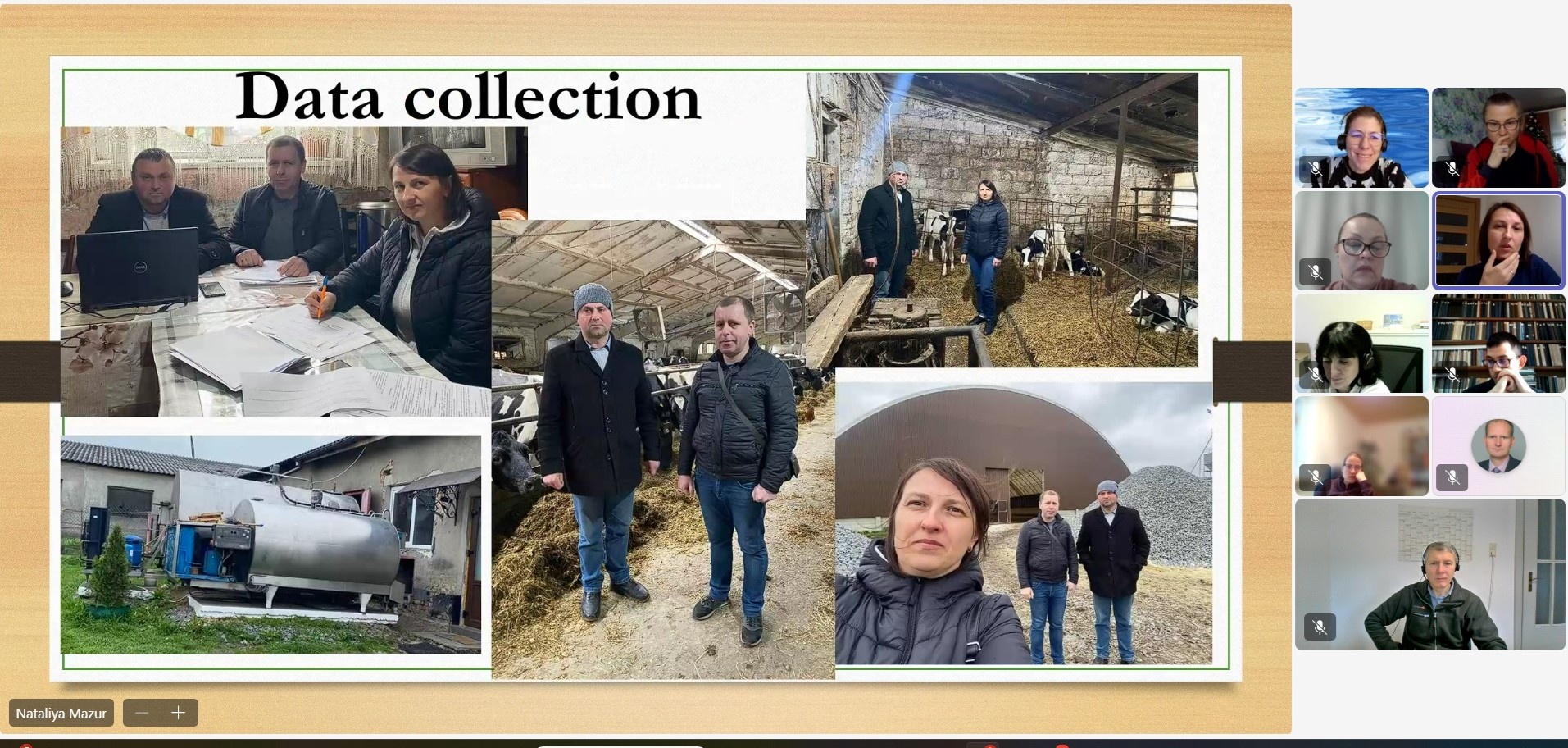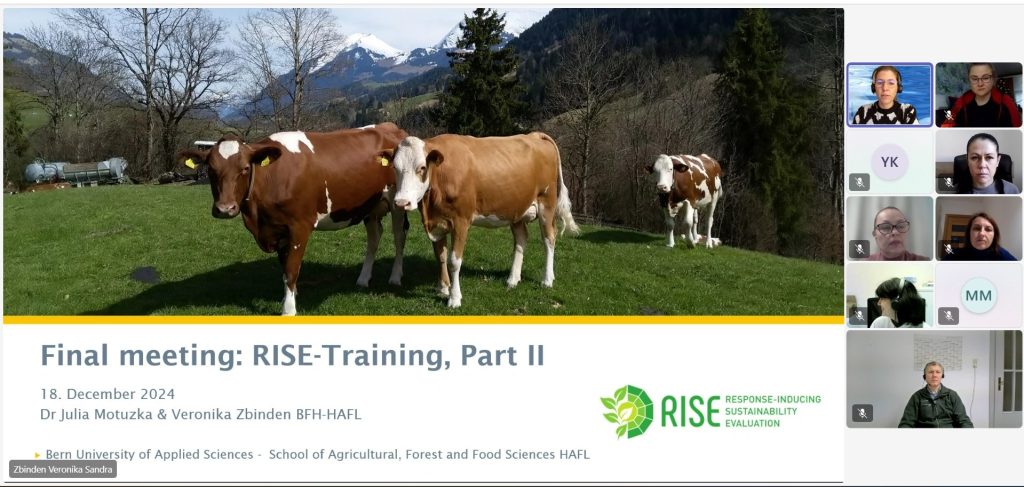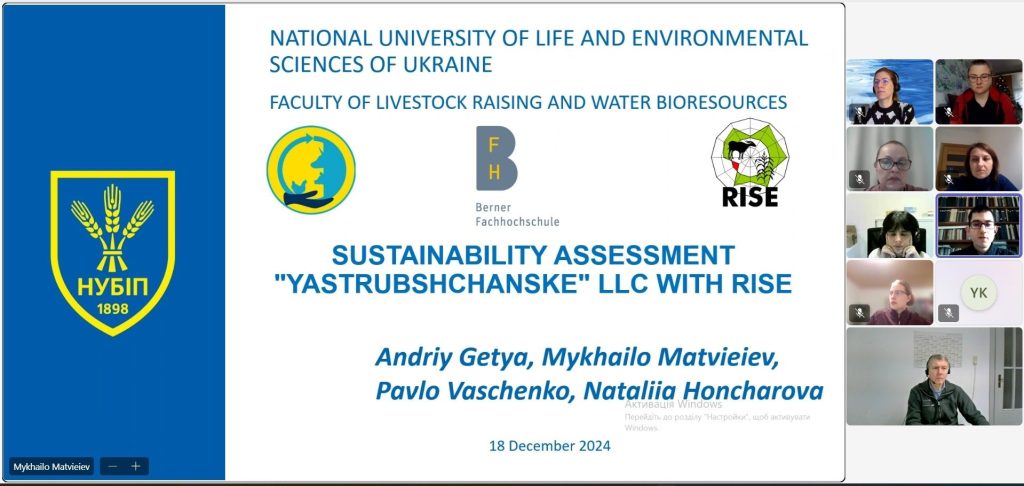Assessing the sustainability of Ukrainian farms. Presentation of the results of the RISE programme in Ukraine

Sustainability in agriculture is a management practice that ensures efficient food production with optimal use of resources, while preserving the natural environment, soil fertility and biodiversity. Such resource management allows us to take care of future generations.
As part of the SuLAWe project, training in the use of the RISE (Response-inducing sustainability evaluation) programme was organised for university staff of Ukrainian partners in collaboration with the Bern University of Applied Sciences (BFH-HAFL). The training lasted almost a year (from March to November 2024).
During the training, Veronika Zbinden from BFH-HAFL, spoke about the possibilities of using the RISE method to assess the sustainability of real agricultural enterprises. Representatives of the partner universities were divided into working groups, each of which analysed a different farm.
Training participants learned to apply their theoretical knowledge by evaluating real farms of varying capacity and specialisation.
For example, the first group, consisting of representatives from NUBiP and PSAU, assessed the Yastrubshchanske LLC farm (dairy farm).
The second group, made up of representatives of the PSAU, evaluated the activities of the family farm “Dobro-Kraft” (goat breeding farm).
The third group (Lviv National University of Veterinary Medicine and Biotechnology named after S.Z. Gzhytsky) evaluated the Lelyk family dairy farm with its own milk processing.
On 18 December, the final meeting was held where the training participants presented the results of the assessment. The speakers gave a detailed description of the farms using the RISE method and suggested ways to improve weaknesses.
Each presentation was followed by a friendly discussion with a detailed analysis of the results.
Finally, the participants expressed their hope to expand the involvement of Ukrainian farms in the RISE sustainability assessment programme and their desire to use the experience gained to teach students. Each of the universities received 30 teaching licences for 3 years.


